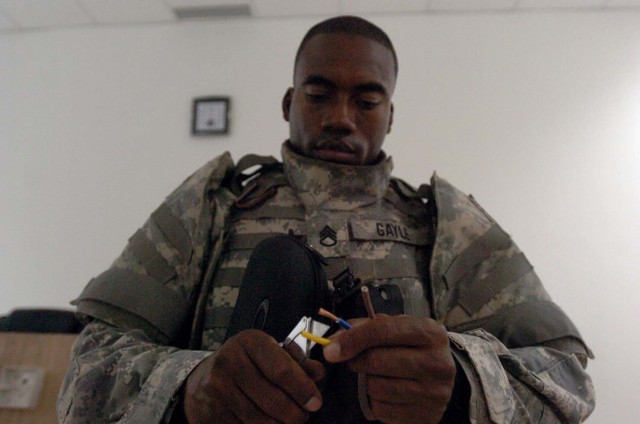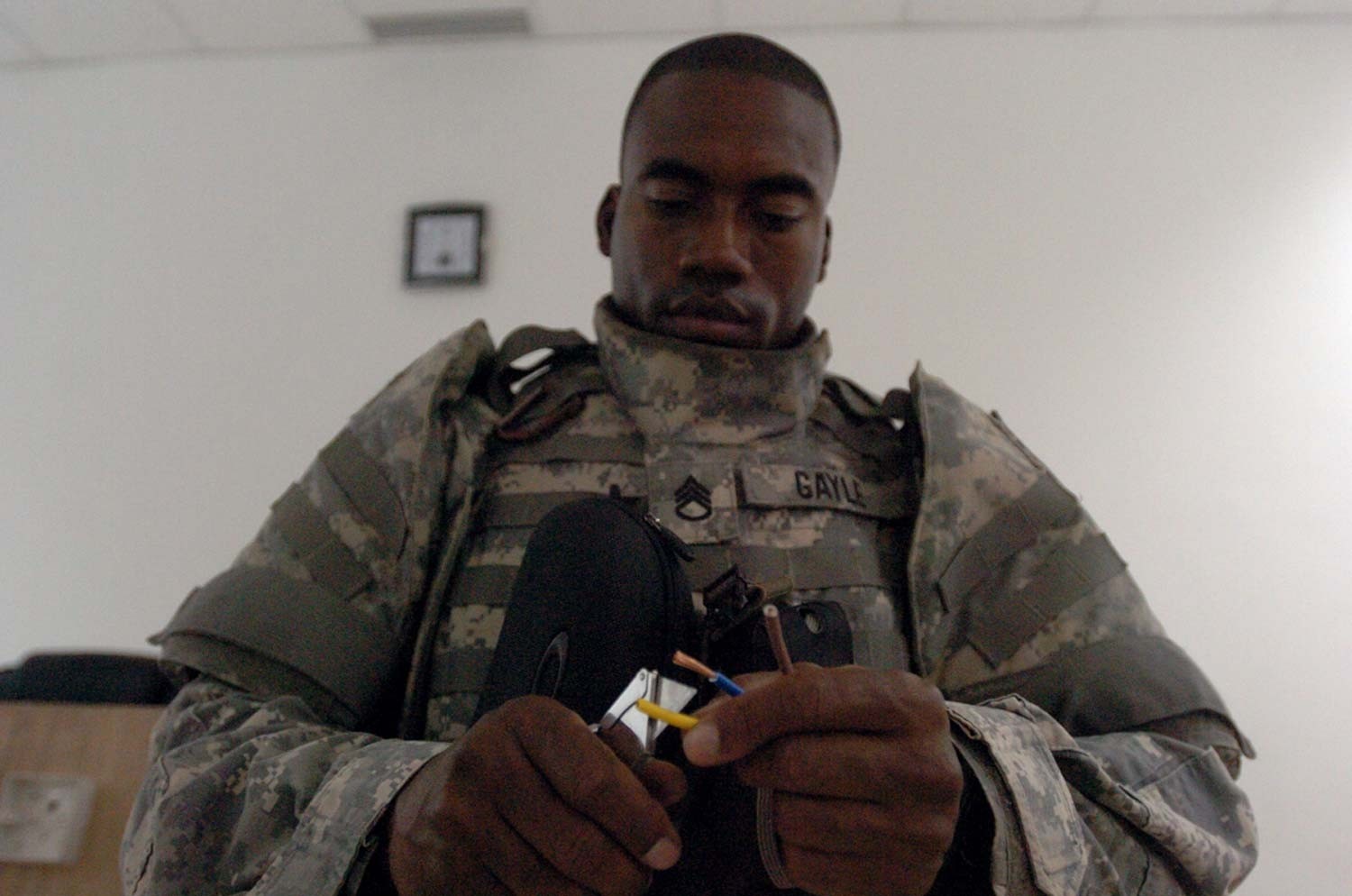
BAGHDAD - On the streets of Iraq's capital, electricity comes and goes. Some enjoy it without interruption. Others receive periods of steady supply followed by rolling blackouts.
But inside the Iraqi police headquarters on the once contentious Haifa Street of the Karkh District, the air conditioner and fluorescent lights are on and a class is in session. The eager students are ready to learn how to supply Baghdad with a more consistent stream of power.
The class, which was taught by Chief Warrant Officer Michael McGee, 33, the utilities, operations and maintenance technician for 20th Engineering Battalion, 1169th Engineer Group, 1st Cavalry Division, and Staff Sgt. Trevor Gayle, 30, a construction supervisor also with the same battalion, instructed the Iraqi policemen in basic electrical knowledge.
"We taught them some of the basic components of a system, circuit breaker panels, lights, switches, receptacles, the lights themselves, air conditioners. (We) told them how to hook all that stuff up," said McGee, a native of Philadelphia.
Through an interpreter McGee and Gayle demonstrated the correct way to provide power to a building.
"We were asked to come out and teach a class to some of the (Iraqi policemen) to show them the proper way to hook up electricity. A lot of times they know how to do it, but they go about doing it the wrong way," said Gayle, a native of Plant City, Fla. "I hope they learned even though they're asked to give power and sometimes it's unsafe, there is a right way to do it."
Although unsafe wiring is prevalent throughout Baghdad structures, which increases the likelihood of fire, Gayle and McGee are giving their students an alternative to creating fire hazards.
Not only were Iraq's electricians of tomorrow showed how to do it right. They also had an opportunity to demonstrate the skills they were learning to implement on upcoming projects, such as additional Iraqi police stations, Gayle said.
"Anytime you teach a class you always want to show (the students) hands on," he said. "Some people learn in the classroom and some learn doing hands on. It's always better to see a person do it or give them a chance to do it, so you can tell if they are doing it right."
In addition, the class empowered the Iraqi policemen by teaching them a skill they can later put to use in rebuilding Iraq.
"If they're not (self-sufficient) then they will not be able to survive and will always be dependent on us. In order for them to move on and take over their own country we have to teach them," Gayle said.
The class may pay dividends down the line if the Iraqi policemen can complete some projects without coalition assistance.
"Anytime we can get out there and show them how to do something for themselves that's less we're going to have to do. The Iraqis were not asking us to do it for them but to help them and teach them how to do it, so they could do it for themselves," McGee said. "If you're going to ask for my help because you want to learn to do something, then I'm going to show you."

Social Sharing